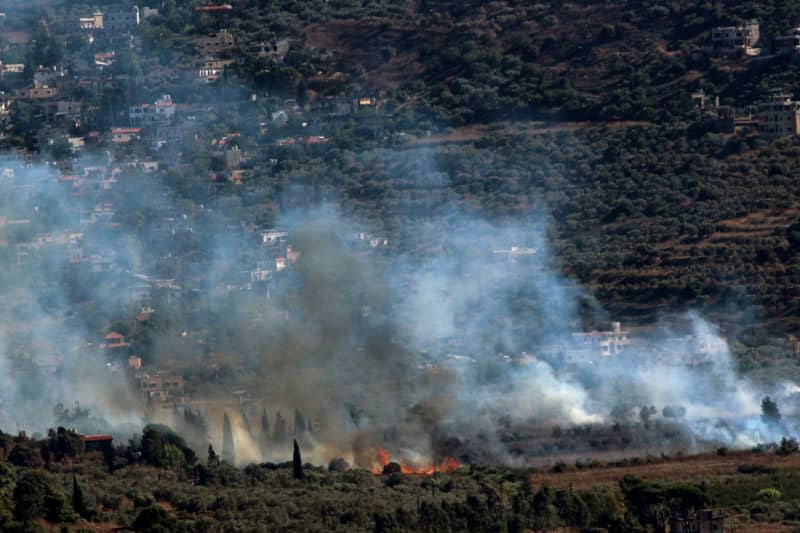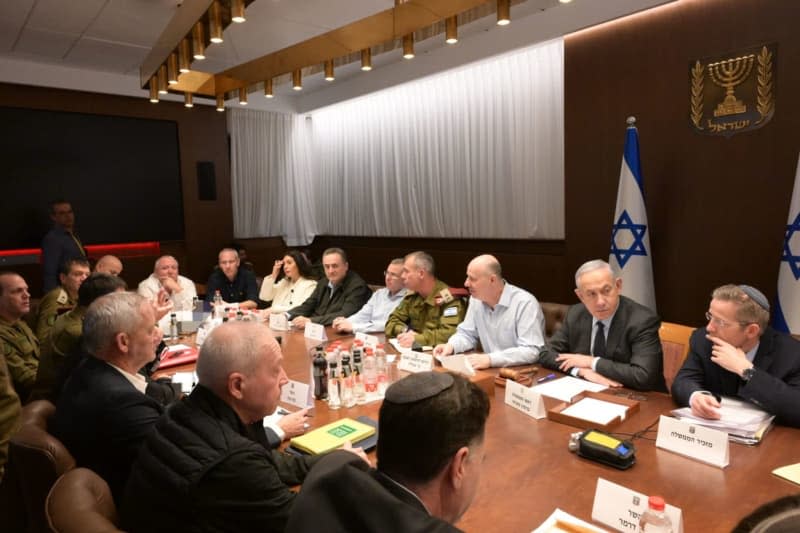Israel’s government is preparing for a retaliatory strike against Hezbollah in Lebanon following the devastating rocket attack on the Israeli-occupied Golan Heights, where at least 12 children were killed on Saturday.
After more than four hours of consultations, the security cabinet authorized Prime Minister Benjamin Netanyahu and Defence Minister Yoav Gallant “to decide on the manner and timing of action against the terrorist organization Hezbollah,” Netanyahu’s office said on Sunday evening. Earlier he had threatened the pro-Iranian militia, saying they would pay a “high price.”
As tensions rise – and Western leaders warn against an expansion of the Middle East conflict – Hezbollah in southern Lebanon said it is preparing for a possibly severe Israeli attack.
Lufthansa, Air France, Middle East Airlines and Royal Jordanian Airline have all suspended service to Beirut through Tuesday citing security concerns.
US officials have contacted their colleagues in Israel and Lebanon and exchanged messages with Iran in an attempt to de-escalate the situation, according to the Wall Street Journal newspaper, citing Arab and European officials familiar with the matter. All sides indicated that they are not interested in escalating the conflict, it was reported.
Two dead after Israeli attack in Lebanon
On Monday, at least two people were killed in an Israeli drone strike in southern Lebanon, the state-run National News Agency (NNA) reported. Hezbollah later said the two were members.
The agency also reported that there were injuries as a result of the drone attack, among them a child who was standing on the balcony of his house when the attack took place on a road between Shaqra and the southern border town of Mais al-Jabal.
In retaliation to the killing of two of its fighters, Hezbollah said in statement that it launched “dozens of Katyusha rockets” at an Israeli military site in northern Israel.
US: Working on a diplomatic solution
Efforts are also being made towards a “diplomatic solution along the Blue Line” that would end all attacks once and for all and enable the safe return home for citizens on both sides of the border, the White House National Security Council said on Sunday.
The Blue Line is the demarcation line drawn by the United Nations at the border between the two countries. After the second Lebanon war in 2006, a buffer zone was established in southern Lebanon.
Since the start of the Gaza war last October, Hezbollah and Israel’s army have engaged in almost daily skirmishes. The militia acts in solidarity with the Palestinian Islamist Hamas movement in the Gaza Strip.
The rocket attack on the Golan Heights came at a critical time for efforts to achieve a ceasefire in the Gaza war.
An escalation between Israel and Hezbollah could halt the indirect negotiations between Israel and Hamas that have been dragging on for months. In these talks, Qatar, Egypt, and the US act as mediators.
Israel’s chief negotiator David Barnea had only returned to Israel this weekend after a recent round of negotiations in Rome. Talks would continue in the coming days, the prime minister’s office announced without providing details.
Erdoğan and Israel threaten each other
Turkish President Recep Tayyip Erdoğan meanwhile threatened Israel with military intervention, prompting Israel’s Foreign Minister Israel Katz to compare Erdoğan with Saddam Hussein.
“Erdoğan is following in the footsteps of Saddam Hussein and threatening an attack on Israel. He should just remember what happened there and how it ended,” Katz wrote late in the evening on the platform X.
In 2003, US troops invaded Iraq. The military operation led to the overthrow of then-Iraqi dictator Saddam Hussein. Three years later, Hussein was executed for massacres against Kurds and Shia.
Since the beginning of the Gaza war, relations between Israel and Turkey have significantly deteriorated. Erdoğan called Hamas a “liberation organization” and likened Netanyahu to Adolf Hitler – a comparison the Turkish foreign minister repeated in a post on X.
In mid-July, Erdoğan stated that his country would not consent to cooperation between NATO and its partner Israel until lasting peace was achieved in the Palestinian Territories.











